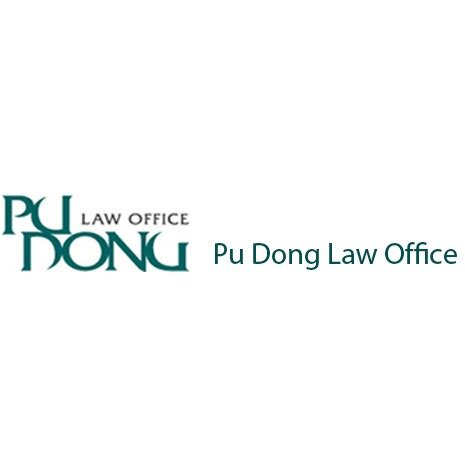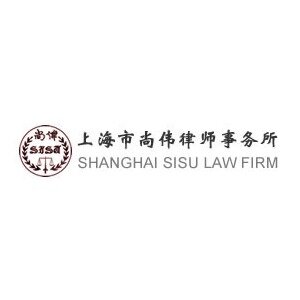Best Native People Lawyers in Shanghai
Share your needs with us, get contacted by law firms.
Free. Takes 2 min.
List of the best lawyers in Shanghai, China
About Native People Law in Shanghai, China
Shanghai, a bustling metropolis in China, is known for its multicultural environment. However, the term "Native People" within the context of Shanghai refers to various ethnic minorities and indigenous groups that may reside in the city. Recognizing the rights and laws pertaining to these groups is essential for ensuring their fair treatment and integration into urban life. Native People law in Shanghai pertains to rights protection, cultural preservation, and non-discrimination within the broader legal framework of China.
Why You May Need a Lawyer
Legal assistance can become crucial for Native People in Shanghai for several reasons. These may include navigating residency rights, addressing employment discrimination, ensuring equal access to public services, and protecting cultural heritage. Legal challenges could also arise in areas such as property disputes, compensation claims, and matters related to civil rights infringement. Having a lawyer who understands the specific needs and legal protections for Native People is important for resolving such issues effectively.
Local Laws Overview
The legal landscape for Native People in Shanghai is influenced by both national and local regulations. The Chinese Constitution and other national laws provide a foundation for protecting minority rights, emphasizing equality and cultural respect. Specifically relevant to Shanghai, local regulations may address non-discriminatory practices in employment and education, language rights, and the promotion of cultural heritage. It is critical for Native People and legal practitioners to be versed in these laws to navigate specific legal challenges.
Frequently Asked Questions
What rights do Native People have under Chinese law?
Native People have the same basic rights as other citizens under Chinese law, including protection of their language and culture, along with access to education and employment on an equal basis.
Are there any special legal provisions for Native People in Shanghai?
While national legislation applies, Shanghai may have specific measures promoting cultural integration and non-discrimination in various sectors to support Native People.
How can discrimination be addressed legally?
Victims of discrimination can file complaints with relevant governmental bodies or pursue legal action through the courts, with support from legal professionals specializing in rights protection.
What services are available for Native People seeking employment in Shanghai?
There are government initiatives and organizations designed to assist Native People with job training and placement services, encouraging equitable employment opportunities.
How can Native People protect their cultural heritage in Shanghai?
Legal provisions exist to safeguard cultural expressions and heritage sites, and local cultural bureaus often provide support and guidance in these matters.
Can Native People own property in Shanghai?
Yes, under Chinese law, Native People have the right to own and manage property, subject to the same regulations and restrictions as all citizens.
What is the process for securing residency rights in Shanghai?
Residency rights are managed through local public security bureaus, and Native People may need to provide proof of employment, education, or family connections to secure long-term residency.
Is language support available for legal matters?
In many cases, legal documents and court proceedings must be conducted in Mandarin; however, interpreters may be available to assist those who are not fluent.
What are common legal challenges faced by Native People in Shanghai?
Challenges may include racial discrimination, cultural rights infringements, or difficulties in accessing services and resources designed to protect minority rights.
Do Native People have access to public services in Shanghai?
Yes, Native People are entitled to access public services such as healthcare and education, and there are legal frameworks in place to ensure equal access.
Additional Resources
The following resources may provide valuable support and information for Native People in Shanghai: the Shanghai Ethnic and Religious Affairs Bureau, local cultural associations, the Shanghai Municipal Government, and legal aid organizations specializing in minority rights. These groups can offer guidance, advocacy, and support for those seeking to understand or exercise their legal rights.
Next Steps
If you require legal assistance regarding Native People laws in Shanghai, consider contacting a lawyer who specializes in minority rights or consulting with local legal aid services. Additionally, researching relevant regulations and preparing necessary documentation can help expedite your case. It is advisable to maintain records of any incidents or correspondences related to your legal concern to support your case efforts.
Lawzana helps you find the best lawyers and law firms in Shanghai through a curated and pre-screened list of qualified legal professionals. Our platform offers rankings and detailed profiles of attorneys and law firms, allowing you to compare based on practice areas, including Native People, experience, and client feedback.
Each profile includes a description of the firm's areas of practice, client reviews, team members and partners, year of establishment, spoken languages, office locations, contact information, social media presence, and any published articles or resources. Most firms on our platform speak English and are experienced in both local and international legal matters.
Get a quote from top-rated law firms in Shanghai, China — quickly, securely, and without unnecessary hassle.
Disclaimer:
The information provided on this page is for general informational purposes only and does not constitute legal advice. While we strive to ensure the accuracy and relevance of the content, legal information may change over time, and interpretations of the law can vary. You should always consult with a qualified legal professional for advice specific to your situation.
We disclaim all liability for actions taken or not taken based on the content of this page. If you believe any information is incorrect or outdated, please contact us, and we will review and update it where appropriate.









